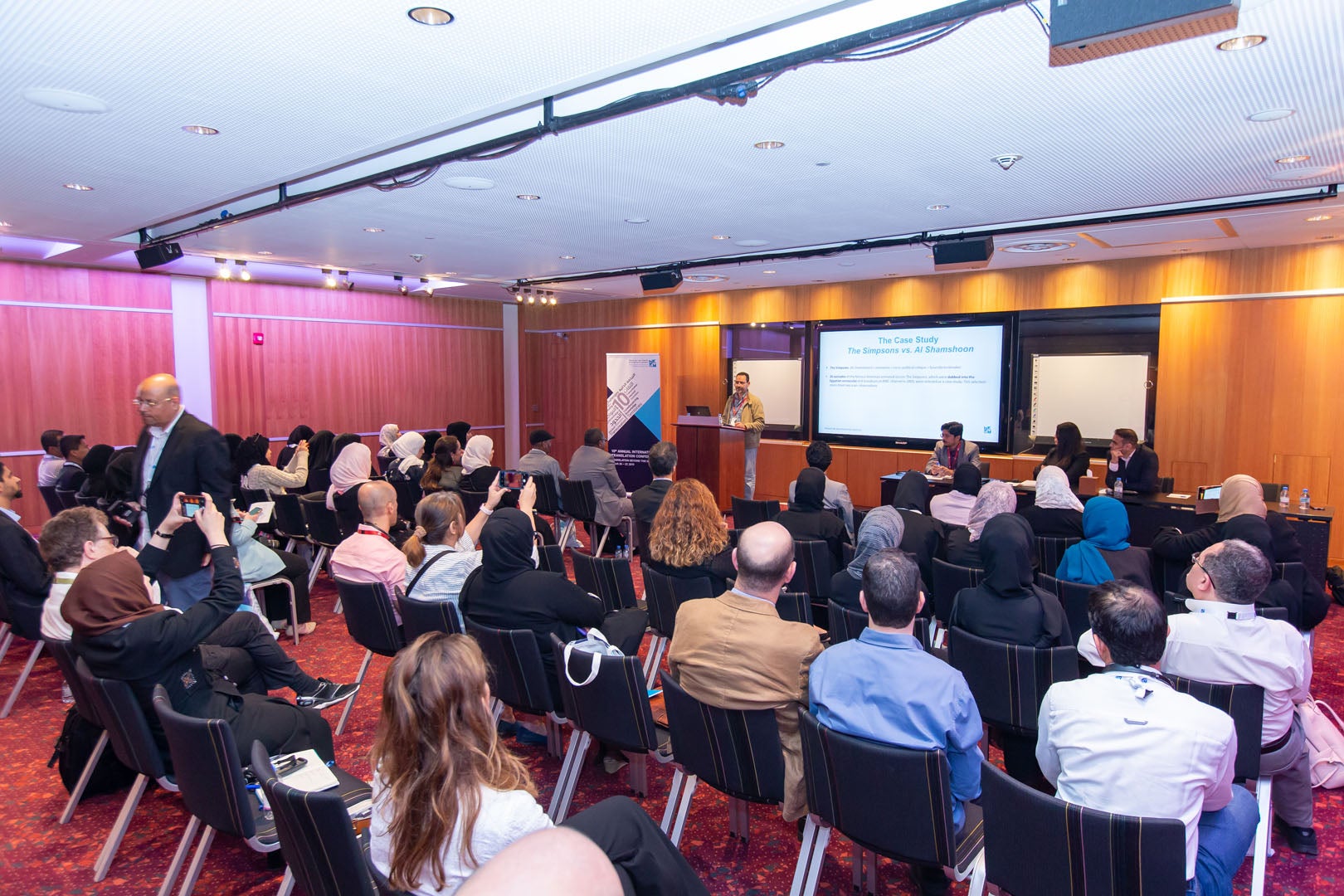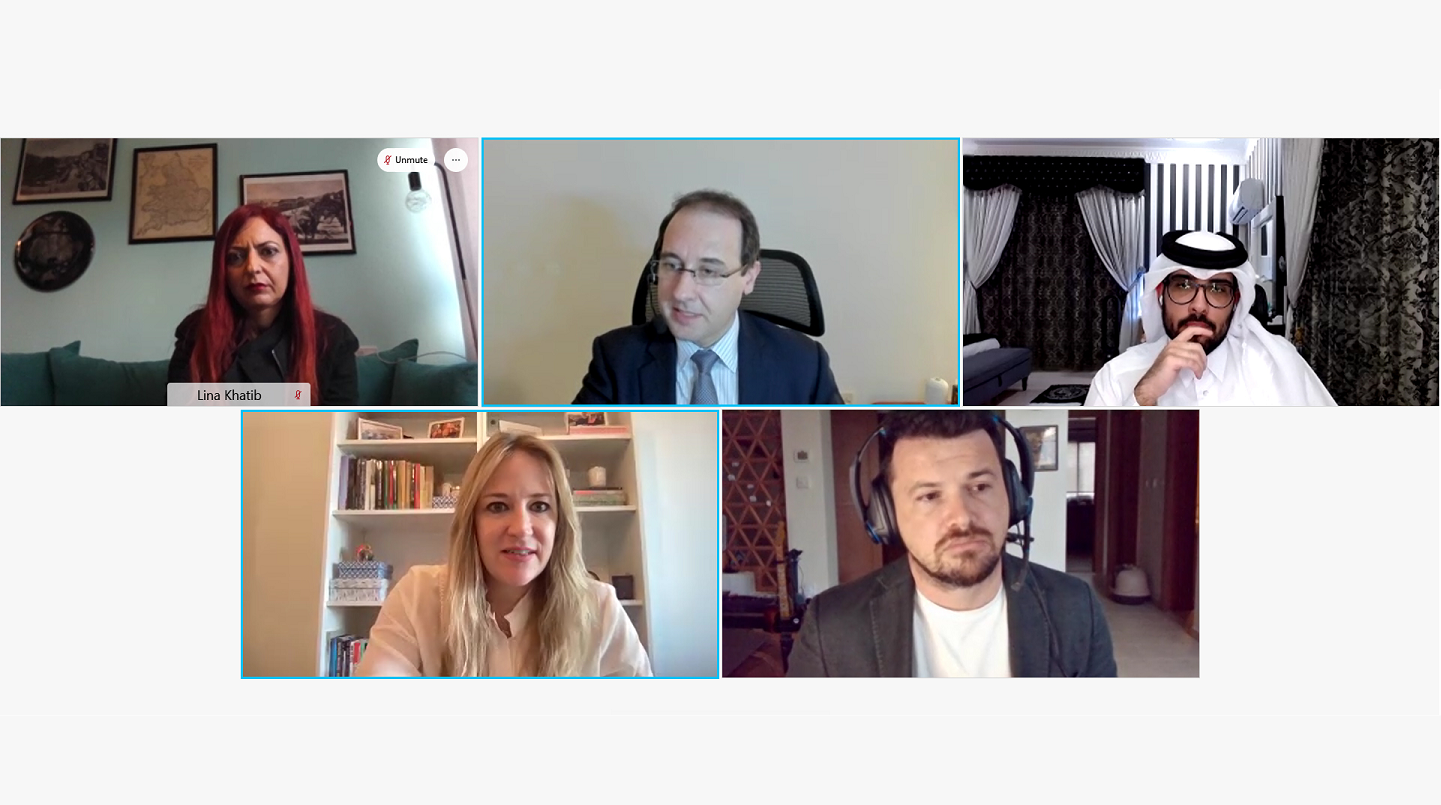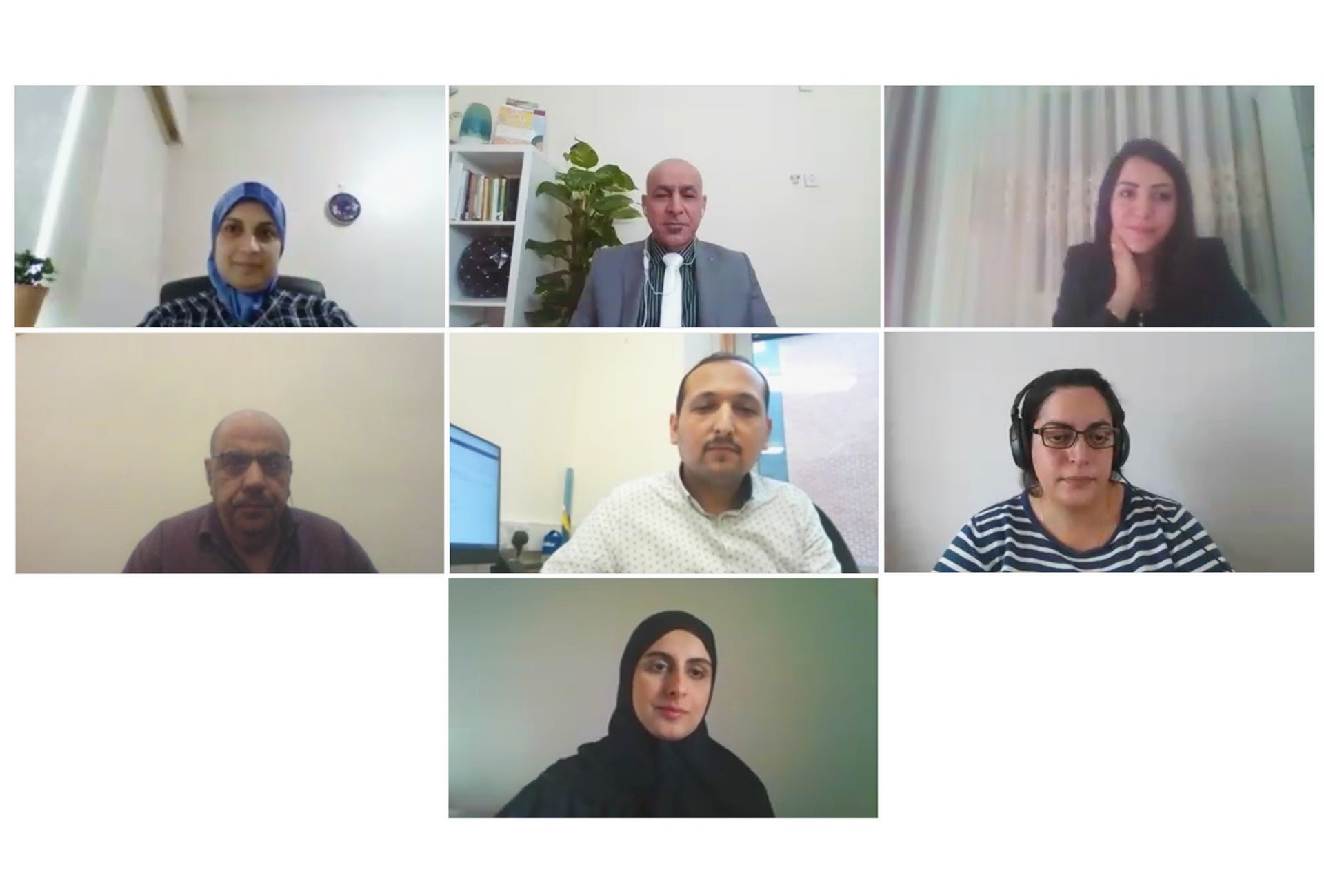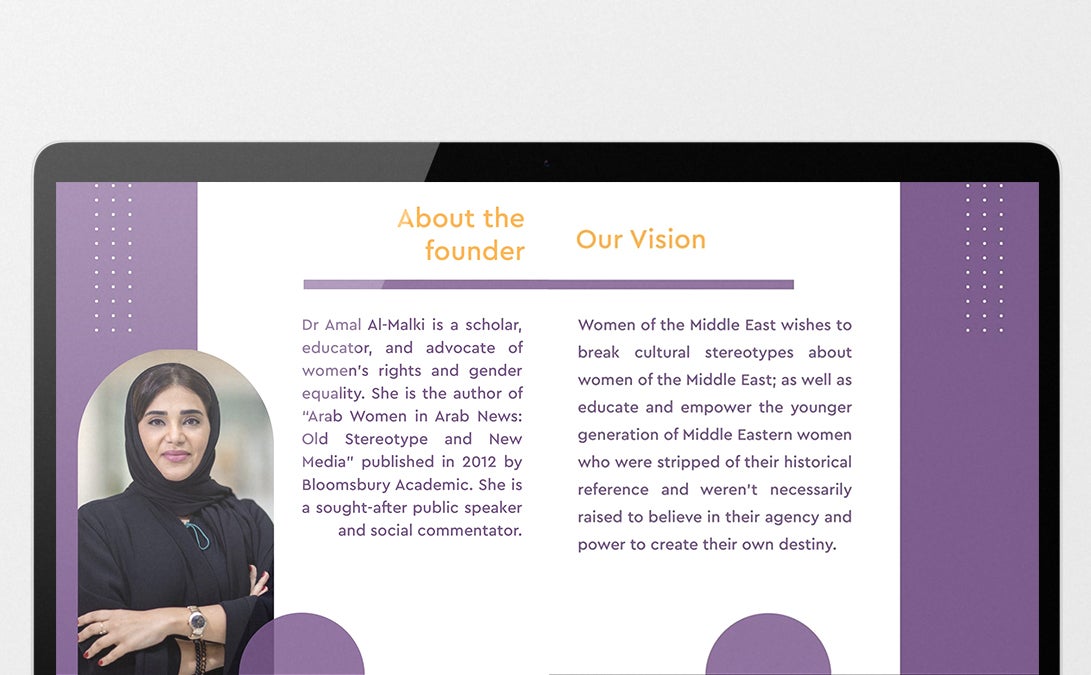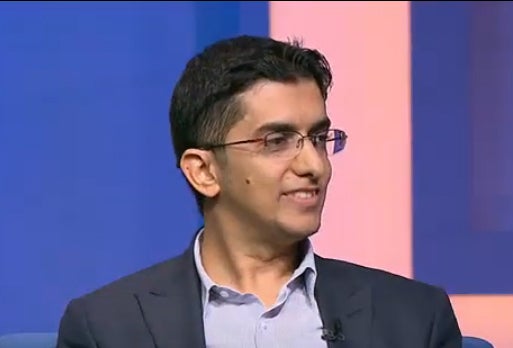
Hamad Bin Khalifa University Spearheads Academic Initiatives Amid COVID-19 Outbreak
College of Humanities and Social Sciences leverages research and online platforms to identify fake news

An interview with Dr. Wajdi Zaghouani, Assistant Professor at the College of Humanities and Social Sciences, Hamad Bin Khalifa University
Can you provide us with an overview of the initiative, its objectives and primary beneficiaries?
The project, which the College of Humanities and Social Sciences (CHLS) is developing in partnership with other entities, provides resources and profiling tools targeting Arabic-language authors. The project also has cybersecurity applications and may be used as a tool to combat cybercrime. More specifically, the platform creates potential profiles for Arabic-language authors by inspecting their social media data to screen published content and identify the author's approximate age and gender. The project also enables the detection of fake news, especially content that may be related to the spread of COVID-19.
While research efforts are underway across Europe and the United States to create potential author profiles, few research endeavors target Arabic content. Our project will bridge this gap and pave the way for further research on profiling Arabic-language authors. Our research will focus on various characteristics to profile authors such as age, native language, and interests. Moreover, we will work to uncover inconsistencies in Arabic texts, which is necessary to distinguish between serious and fake content.
The platform features three main modules: linguistic resources, author identification tools, and application scenarios.
In addition to the platform's use to detect false news relating to COVID-19, profiling tools will support both government organizations as well as internet and telecommunications service providers in tracking cybercrime. Companies may also use profiling tools to improve marketing and service operations. In the context of managing social relationships with clients, Arab companies may use the platform in marketing intelligence (for example, to better understand customer needs and feedback) and also to segment the market (for example, to better target each customer group). Finally, an author's profile may be used to medically identify individuals with serious psychological issues, and to possibly detect and prevent suicide attempts.
Where and how did the initiative’s concept originate?
The concept was born amid the growing importance of cybersecurity, which tops the priorities of Qatar and numerous countries around the world, and the potential misuse of cyberspace to commit various crimes, such as phishing, cyber extortion, cyber bullying, and communicating or planning terrorist attacks using social media.
Our project facilitates the discovery of patterns similar to those employed by criminals when writing messages, thus enabling security experts to detect and neutralize threats using natural language processing techniques.
Who are your current partners?
The platform has been developed in partnership with Carnegie Mellon University in Qatar, the Polytechnic University of Valencia (Spain), and the Scientific Research Center in Sfax (Tunisia). Hamad Bin Khalifa University, represented by CHSS, played a major role in activating this platform.
Related News
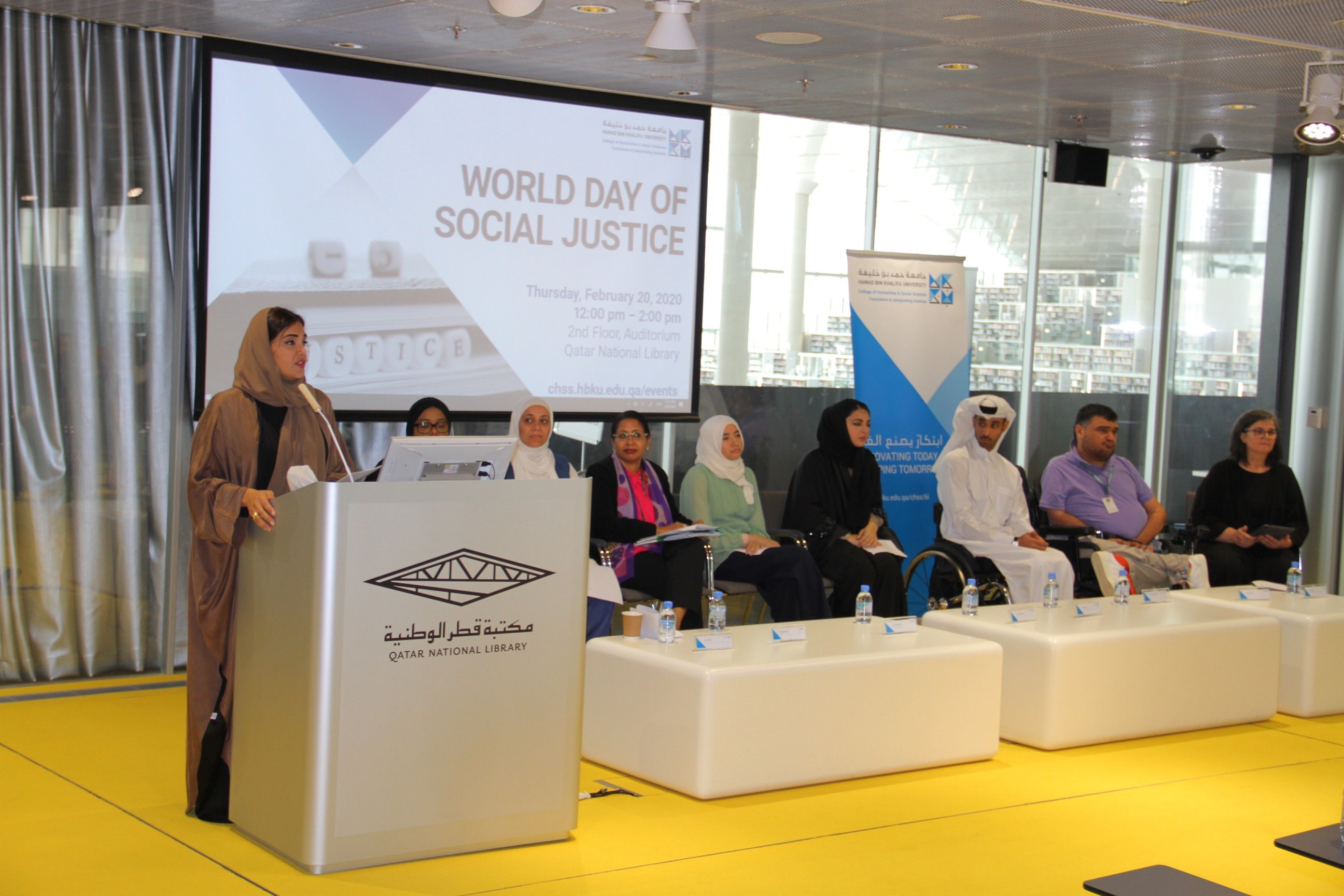
HBKU’s College of Humanities and Social Sciences Marks World Day of Social Justice

College of Humanities and Social Sciences Calls for Papers Ahead of Major Conference
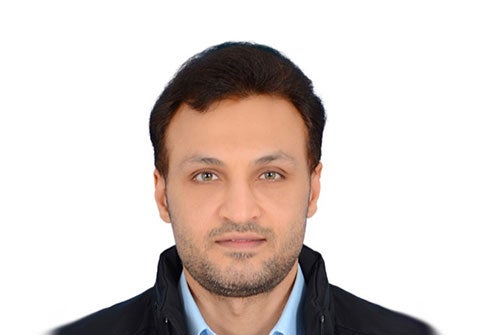
HBKU’s Translation and Interpreting Institute Opens Registration for Business and Finance Workshop
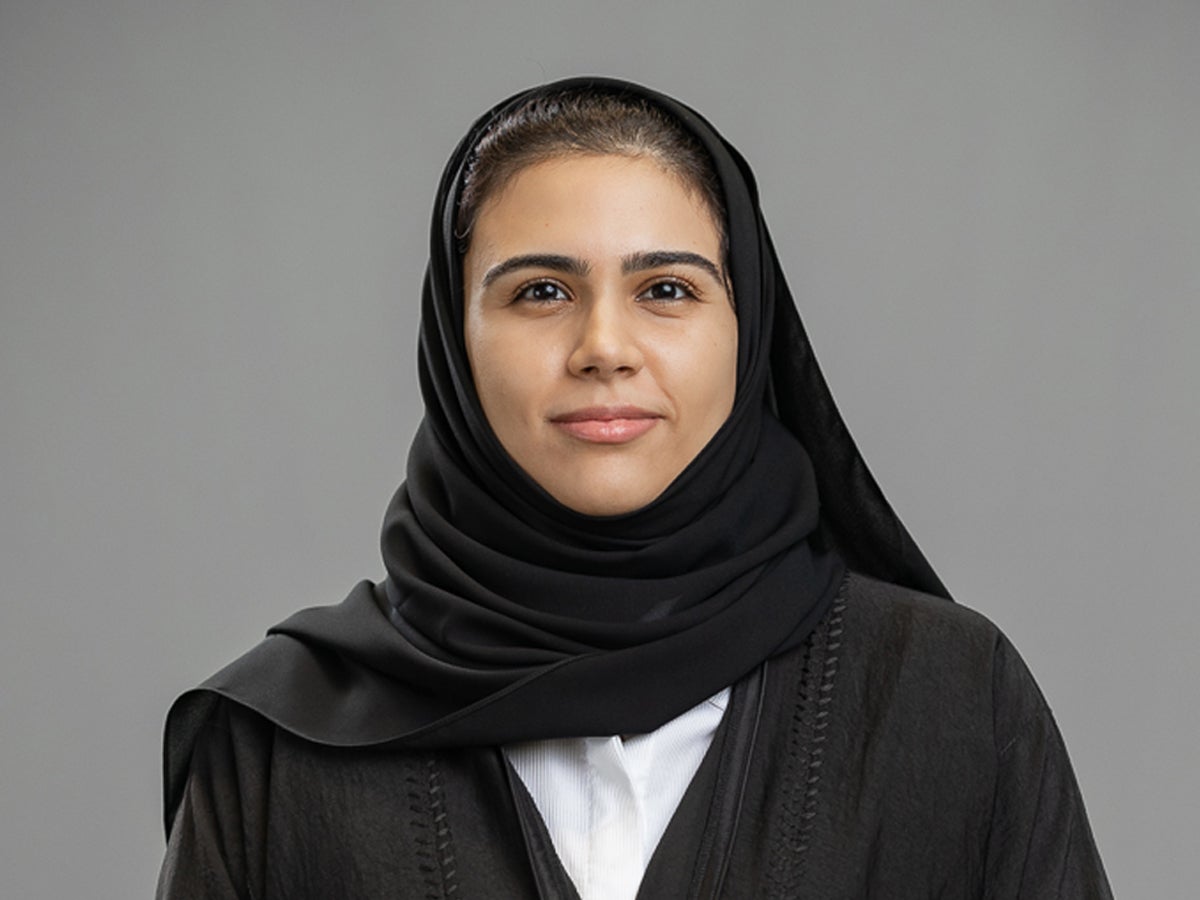
HBKU TII’s Translation and Training Center Unveils Continuing Professional Development Workshops
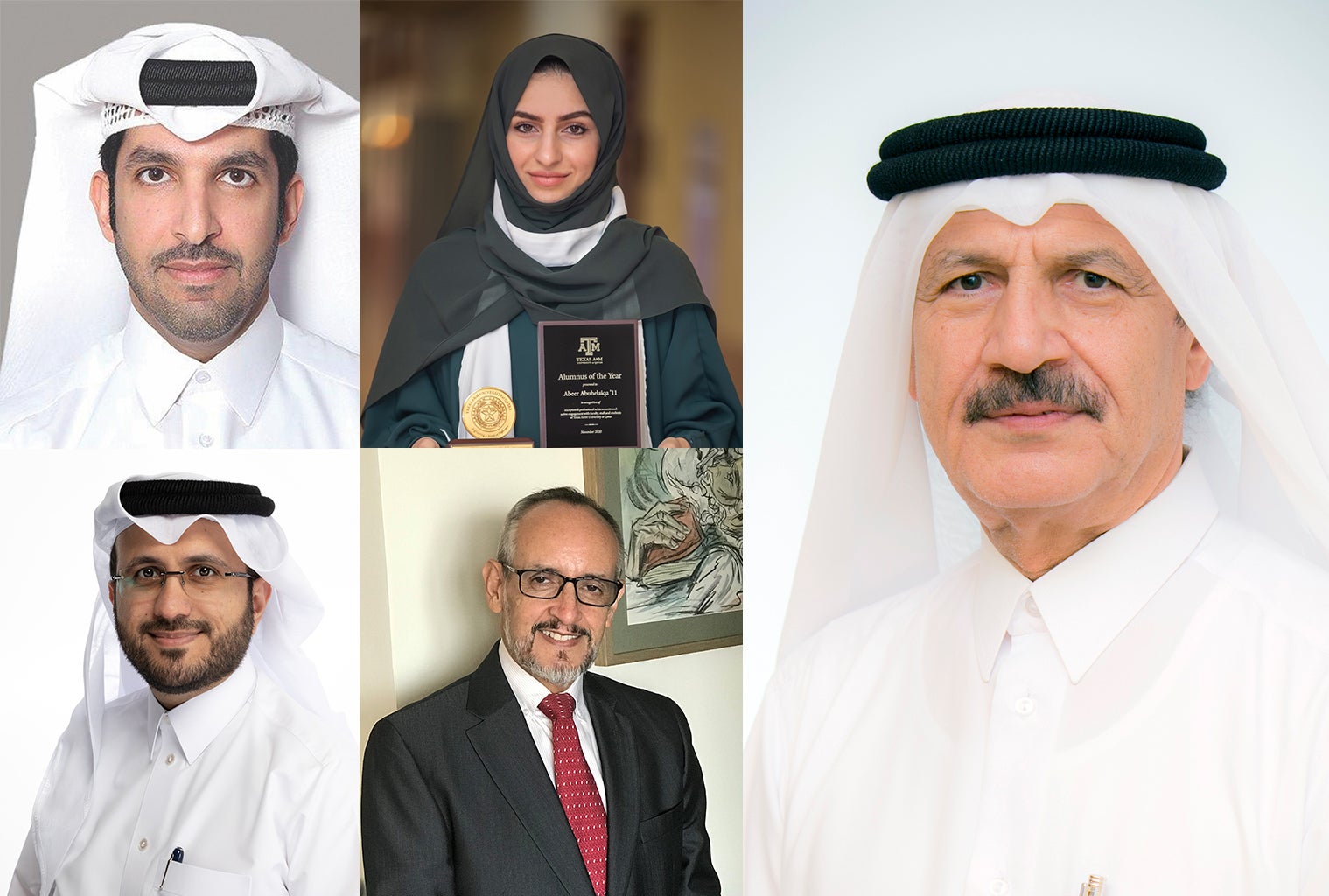
College of Humanities and Social Sciences Announces New Advisory Board Members
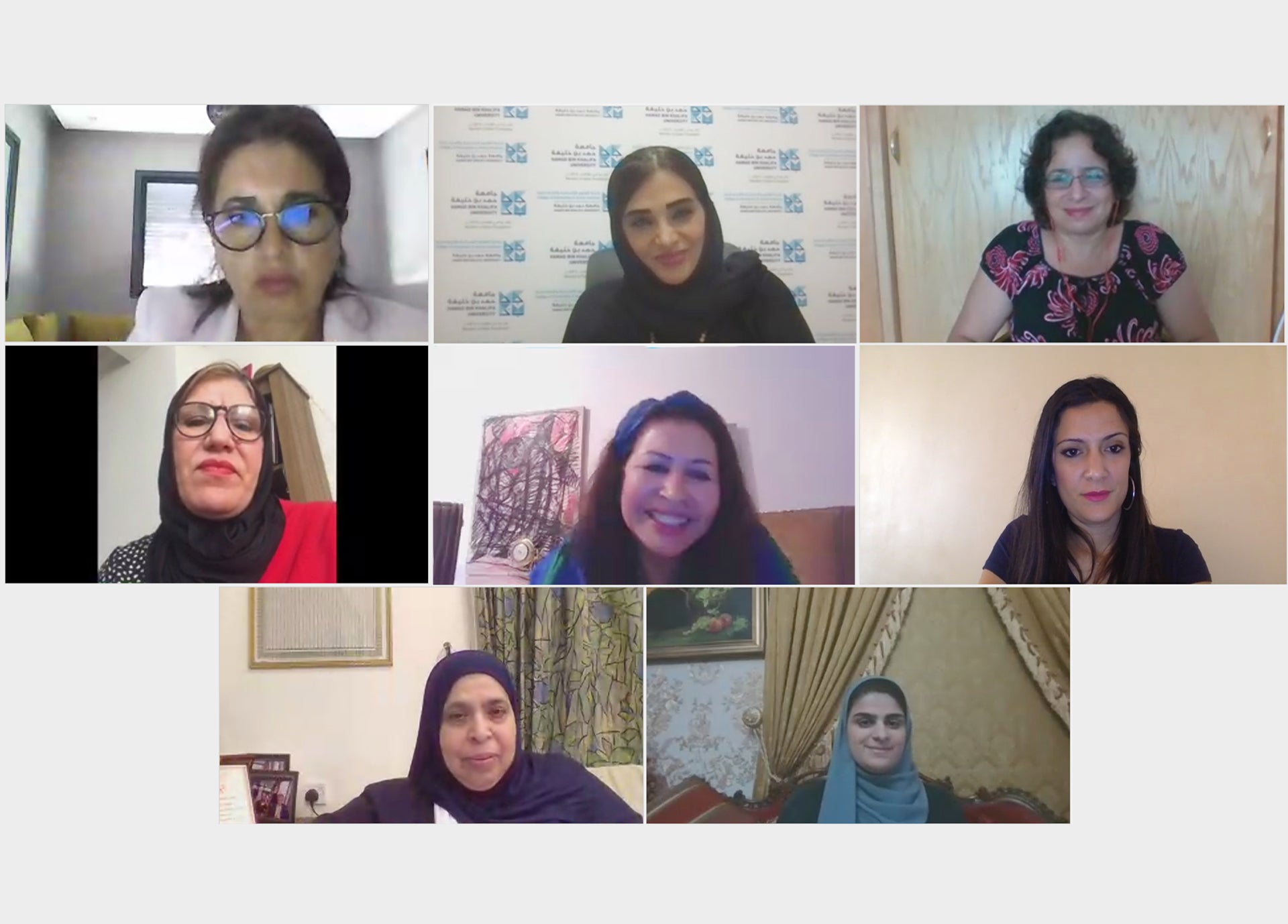
College of Humanities and Social Sciences Considers Impact of Gender Quotas on Women’s Political Participation
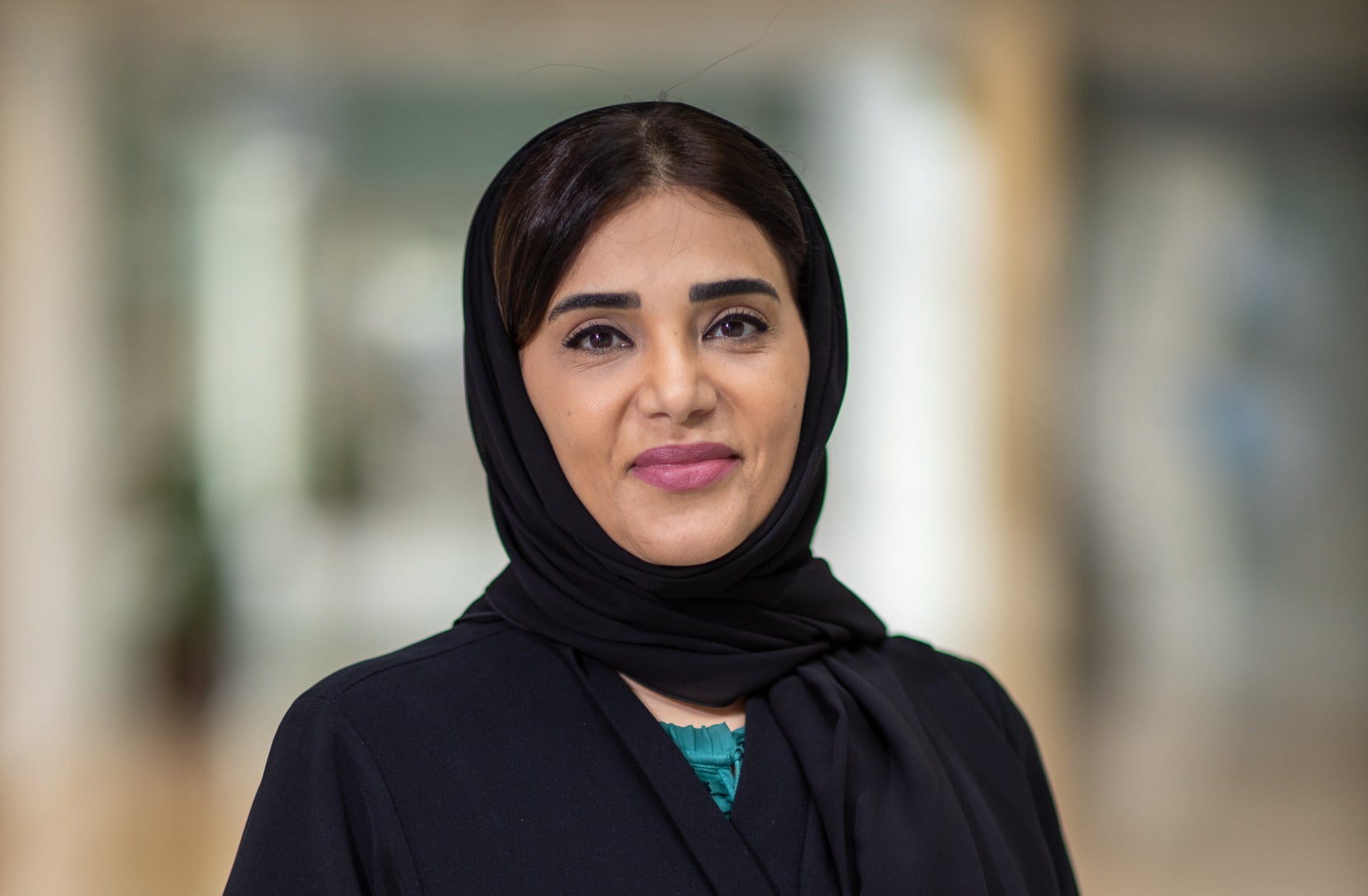
College of Humanities and Social Sciences Opens Application for High-Level Training Strengthening Qatari Women’s Political Participation
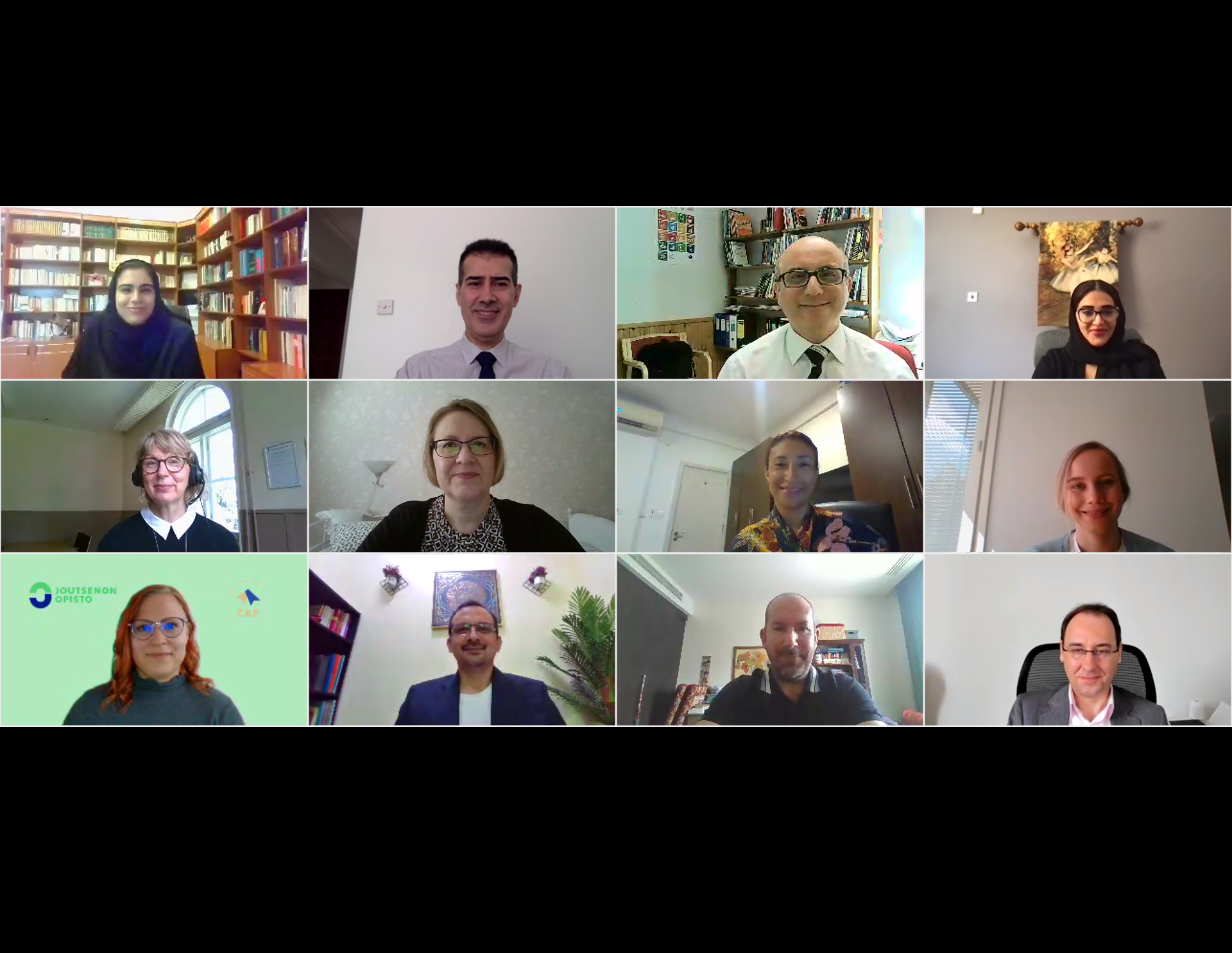
TII’s Language Center at HBKU Shares Arabic Language Expertise with Joutsenon Opisto, Finland Under New Agreement
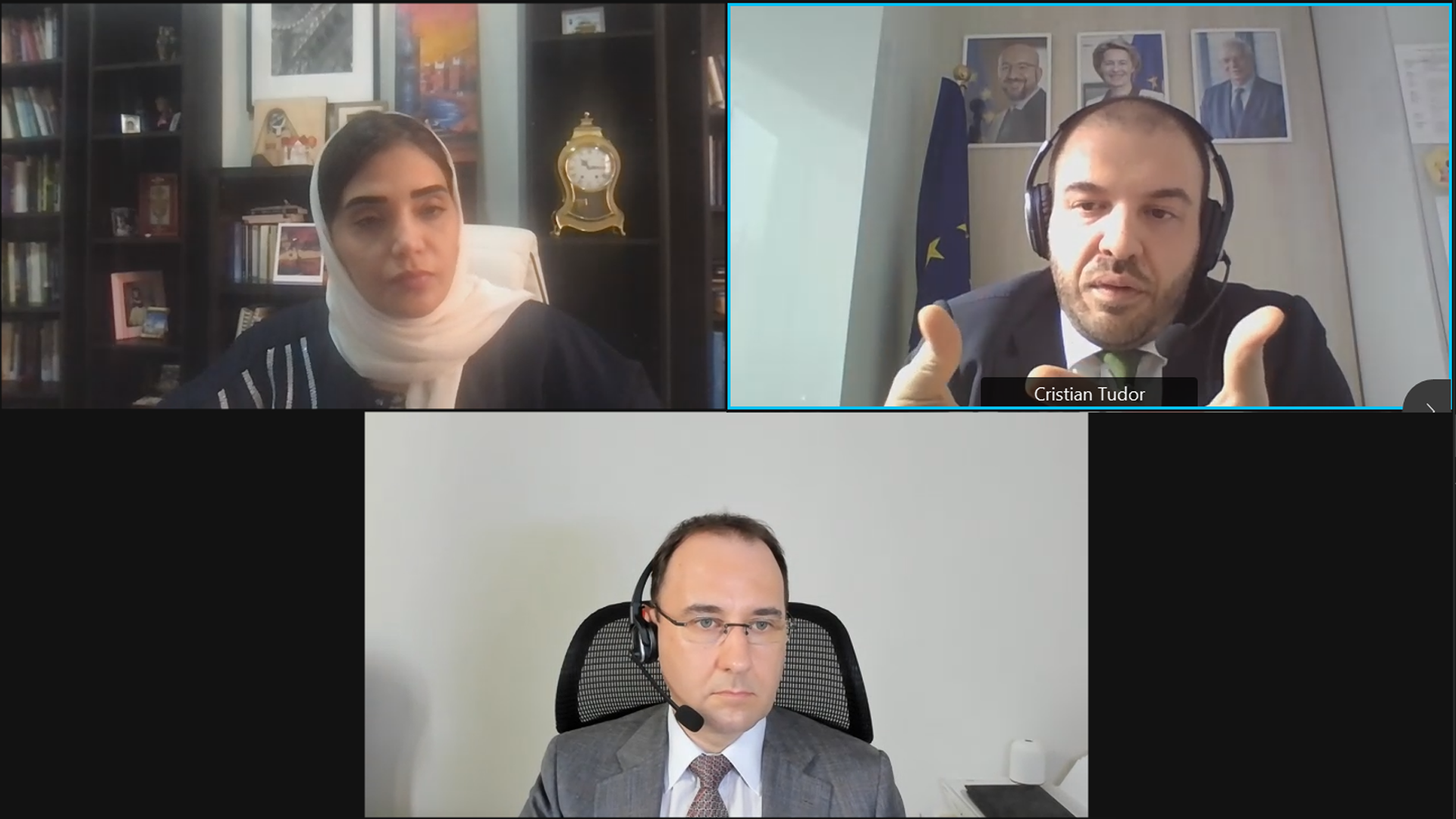
EU Ambassador Highlights Need for Youth Engagement at HBKU College of Humanities and Social Sciences Talk
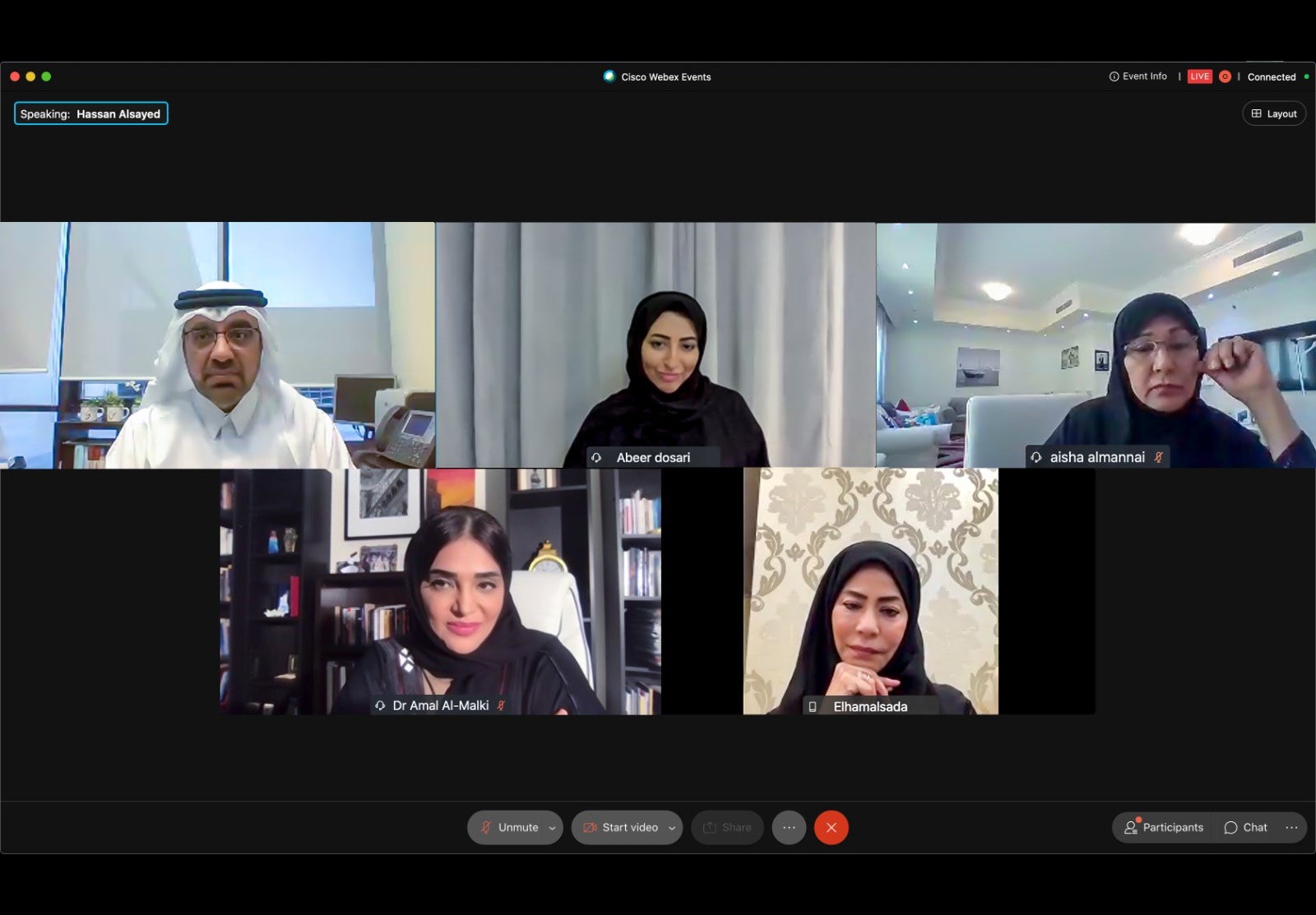
College of Humanities and Social Sciences Launches Qatari Women’s Affairs Series with Inaugural Webinar on Shura Council Elections

HBKU’s College of Humanities and Social Sciences Marks World Day of Social Justice

College of Humanities and Social Sciences Calls for Papers Ahead of Major Conference

HBKU’s Translation and Interpreting Institute Opens Registration for Business and Finance Workshop

HBKU TII’s Translation and Training Center Unveils Continuing Professional Development Workshops

College of Humanities and Social Sciences Announces New Advisory Board Members

College of Humanities and Social Sciences Considers Impact of Gender Quotas on Women’s Political Participation

College of Humanities and Social Sciences Opens Application for High-Level Training Strengthening Qatari Women’s Political Participation

TII’s Language Center at HBKU Shares Arabic Language Expertise with Joutsenon Opisto, Finland Under New Agreement

EU Ambassador Highlights Need for Youth Engagement at HBKU College of Humanities and Social Sciences Talk

College of Humanities and Social Sciences Launches Qatari Women’s Affairs Series with Inaugural Webinar on Shura Council Elections

HBKU’s College of Humanities and Social Sciences Marks World Day of Social Justice

College of Humanities and Social Sciences Calls for Papers Ahead of Major Conference

HBKU’s Translation and Interpreting Institute Opens Registration for Business and Finance Workshop

HBKU TII’s Translation and Training Center Unveils Continuing Professional Development Workshops

College of Humanities and Social Sciences Announces New Advisory Board Members

College of Humanities and Social Sciences Considers Impact of Gender Quotas on Women’s Political Participation

College of Humanities and Social Sciences Opens Application for High-Level Training Strengthening Qatari Women’s Political Participation

TII’s Language Center at HBKU Shares Arabic Language Expertise with Joutsenon Opisto, Finland Under New Agreement

EU Ambassador Highlights Need for Youth Engagement at HBKU College of Humanities and Social Sciences Talk

College of Humanities and Social Sciences Launches Qatari Women’s Affairs Series with Inaugural Webinar on Shura Council Elections

HBKU’s College of Humanities and Social Sciences Marks World Day of Social Justice

College of Humanities and Social Sciences Calls for Papers Ahead of Major Conference

HBKU’s Translation and Interpreting Institute Opens Registration for Business and Finance Workshop

HBKU TII’s Translation and Training Center Unveils Continuing Professional Development Workshops

College of Humanities and Social Sciences Announces New Advisory Board Members

College of Humanities and Social Sciences Considers Impact of Gender Quotas on Women’s Political Participation

College of Humanities and Social Sciences Opens Application for High-Level Training Strengthening Qatari Women’s Political Participation

TII’s Language Center at HBKU Shares Arabic Language Expertise with Joutsenon Opisto, Finland Under New Agreement

EU Ambassador Highlights Need for Youth Engagement at HBKU College of Humanities and Social Sciences Talk

College of Humanities and Social Sciences Launches Qatari Women’s Affairs Series with Inaugural Webinar on Shura Council Elections

HBKU’s College of Humanities and Social Sciences Marks World Day of Social Justice

College of Humanities and Social Sciences Calls for Papers Ahead of Major Conference

HBKU’s Translation and Interpreting Institute Opens Registration for Business and Finance Workshop

HBKU TII’s Translation and Training Center Unveils Continuing Professional Development Workshops

College of Humanities and Social Sciences Announces New Advisory Board Members

College of Humanities and Social Sciences Considers Impact of Gender Quotas on Women’s Political Participation

College of Humanities and Social Sciences Opens Application for High-Level Training Strengthening Qatari Women’s Political Participation

TII’s Language Center at HBKU Shares Arabic Language Expertise with Joutsenon Opisto, Finland Under New Agreement

EU Ambassador Highlights Need for Youth Engagement at HBKU College of Humanities and Social Sciences Talk

College of Humanities and Social Sciences Launches Qatari Women’s Affairs Series with Inaugural Webinar on Shura Council Elections

HBKU’s College of Humanities and Social Sciences Marks World Day of Social Justice

College of Humanities and Social Sciences Calls for Papers Ahead of Major Conference

HBKU’s Translation and Interpreting Institute Opens Registration for Business and Finance Workshop

HBKU TII’s Translation and Training Center Unveils Continuing Professional Development Workshops

College of Humanities and Social Sciences Announces New Advisory Board Members

College of Humanities and Social Sciences Considers Impact of Gender Quotas on Women’s Political Participation

College of Humanities and Social Sciences Opens Application for High-Level Training Strengthening Qatari Women’s Political Participation

TII’s Language Center at HBKU Shares Arabic Language Expertise with Joutsenon Opisto, Finland Under New Agreement

EU Ambassador Highlights Need for Youth Engagement at HBKU College of Humanities and Social Sciences Talk

College of Humanities and Social Sciences Launches Qatari Women’s Affairs Series with Inaugural Webinar on Shura Council Elections

HBKU’s College of Humanities and Social Sciences Marks World Day of Social Justice

College of Humanities and Social Sciences Calls for Papers Ahead of Major Conference

HBKU’s Translation and Interpreting Institute Opens Registration for Business and Finance Workshop

HBKU TII’s Translation and Training Center Unveils Continuing Professional Development Workshops

College of Humanities and Social Sciences Announces New Advisory Board Members

College of Humanities and Social Sciences Considers Impact of Gender Quotas on Women’s Political Participation

College of Humanities and Social Sciences Opens Application for High-Level Training Strengthening Qatari Women’s Political Participation

TII’s Language Center at HBKU Shares Arabic Language Expertise with Joutsenon Opisto, Finland Under New Agreement

EU Ambassador Highlights Need for Youth Engagement at HBKU College of Humanities and Social Sciences Talk

College of Humanities and Social Sciences Launches Qatari Women’s Affairs Series with Inaugural Webinar on Shura Council Elections

HBKU’s College of Humanities and Social Sciences Marks World Day of Social Justice

College of Humanities and Social Sciences Calls for Papers Ahead of Major Conference

HBKU’s Translation and Interpreting Institute Opens Registration for Business and Finance Workshop

HBKU TII’s Translation and Training Center Unveils Continuing Professional Development Workshops

College of Humanities and Social Sciences Announces New Advisory Board Members

College of Humanities and Social Sciences Considers Impact of Gender Quotas on Women’s Political Participation

College of Humanities and Social Sciences Opens Application for High-Level Training Strengthening Qatari Women’s Political Participation

TII’s Language Center at HBKU Shares Arabic Language Expertise with Joutsenon Opisto, Finland Under New Agreement

EU Ambassador Highlights Need for Youth Engagement at HBKU College of Humanities and Social Sciences Talk

College of Humanities and Social Sciences Launches Qatari Women’s Affairs Series with Inaugural Webinar on Shura Council Elections

HBKU’s College of Humanities and Social Sciences Marks World Day of Social Justice

College of Humanities and Social Sciences Calls for Papers Ahead of Major Conference

HBKU’s Translation and Interpreting Institute Opens Registration for Business and Finance Workshop

HBKU TII’s Translation and Training Center Unveils Continuing Professional Development Workshops

College of Humanities and Social Sciences Announces New Advisory Board Members

College of Humanities and Social Sciences Considers Impact of Gender Quotas on Women’s Political Participation

College of Humanities and Social Sciences Opens Application for High-Level Training Strengthening Qatari Women’s Political Participation

TII’s Language Center at HBKU Shares Arabic Language Expertise with Joutsenon Opisto, Finland Under New Agreement

EU Ambassador Highlights Need for Youth Engagement at HBKU College of Humanities and Social Sciences Talk

College of Humanities and Social Sciences Launches Qatari Women’s Affairs Series with Inaugural Webinar on Shura Council Elections

HBKU’s College of Humanities and Social Sciences Marks World Day of Social Justice

College of Humanities and Social Sciences Calls for Papers Ahead of Major Conference

HBKU’s Translation and Interpreting Institute Opens Registration for Business and Finance Workshop

HBKU TII’s Translation and Training Center Unveils Continuing Professional Development Workshops

College of Humanities and Social Sciences Announces New Advisory Board Members

College of Humanities and Social Sciences Considers Impact of Gender Quotas on Women’s Political Participation

College of Humanities and Social Sciences Opens Application for High-Level Training Strengthening Qatari Women’s Political Participation

TII’s Language Center at HBKU Shares Arabic Language Expertise with Joutsenon Opisto, Finland Under New Agreement

EU Ambassador Highlights Need for Youth Engagement at HBKU College of Humanities and Social Sciences Talk

College of Humanities and Social Sciences Launches Qatari Women’s Affairs Series with Inaugural Webinar on Shura Council Elections

HBKU’s College of Humanities and Social Sciences Marks World Day of Social Justice

College of Humanities and Social Sciences Calls for Papers Ahead of Major Conference

HBKU’s Translation and Interpreting Institute Opens Registration for Business and Finance Workshop

HBKU TII’s Translation and Training Center Unveils Continuing Professional Development Workshops

College of Humanities and Social Sciences Announces New Advisory Board Members

College of Humanities and Social Sciences Considers Impact of Gender Quotas on Women’s Political Participation

College of Humanities and Social Sciences Opens Application for High-Level Training Strengthening Qatari Women’s Political Participation

TII’s Language Center at HBKU Shares Arabic Language Expertise with Joutsenon Opisto, Finland Under New Agreement

EU Ambassador Highlights Need for Youth Engagement at HBKU College of Humanities and Social Sciences Talk

College of Humanities and Social Sciences Launches Qatari Women’s Affairs Series with Inaugural Webinar on Shura Council Elections

HBKU’s College of Humanities and Social Sciences Marks World Day of Social Justice

College of Humanities and Social Sciences Calls for Papers Ahead of Major Conference

HBKU’s Translation and Interpreting Institute Opens Registration for Business and Finance Workshop

HBKU TII’s Translation and Training Center Unveils Continuing Professional Development Workshops

College of Humanities and Social Sciences Announces New Advisory Board Members

College of Humanities and Social Sciences Considers Impact of Gender Quotas on Women’s Political Participation

College of Humanities and Social Sciences Opens Application for High-Level Training Strengthening Qatari Women’s Political Participation

TII’s Language Center at HBKU Shares Arabic Language Expertise with Joutsenon Opisto, Finland Under New Agreement

EU Ambassador Highlights Need for Youth Engagement at HBKU College of Humanities and Social Sciences Talk

College of Humanities and Social Sciences Launches Qatari Women’s Affairs Series with Inaugural Webinar on Shura Council Elections

HBKU’s College of Humanities and Social Sciences Marks World Day of Social Justice

College of Humanities and Social Sciences Calls for Papers Ahead of Major Conference

HBKU’s Translation and Interpreting Institute Opens Registration for Business and Finance Workshop

HBKU TII’s Translation and Training Center Unveils Continuing Professional Development Workshops

College of Humanities and Social Sciences Announces New Advisory Board Members

College of Humanities and Social Sciences Considers Impact of Gender Quotas on Women’s Political Participation

College of Humanities and Social Sciences Opens Application for High-Level Training Strengthening Qatari Women’s Political Participation

TII’s Language Center at HBKU Shares Arabic Language Expertise with Joutsenon Opisto, Finland Under New Agreement

EU Ambassador Highlights Need for Youth Engagement at HBKU College of Humanities and Social Sciences Talk

College of Humanities and Social Sciences Launches Qatari Women’s Affairs Series with Inaugural Webinar on Shura Council Elections

HBKU’s College of Humanities and Social Sciences Marks World Day of Social Justice

College of Humanities and Social Sciences Calls for Papers Ahead of Major Conference

HBKU’s Translation and Interpreting Institute Opens Registration for Business and Finance Workshop

HBKU TII’s Translation and Training Center Unveils Continuing Professional Development Workshops

College of Humanities and Social Sciences Announces New Advisory Board Members

College of Humanities and Social Sciences Considers Impact of Gender Quotas on Women’s Political Participation

College of Humanities and Social Sciences Opens Application for High-Level Training Strengthening Qatari Women’s Political Participation

TII’s Language Center at HBKU Shares Arabic Language Expertise with Joutsenon Opisto, Finland Under New Agreement

EU Ambassador Highlights Need for Youth Engagement at HBKU College of Humanities and Social Sciences Talk

College of Humanities and Social Sciences Launches Qatari Women’s Affairs Series with Inaugural Webinar on Shura Council Elections

HBKU’s College of Humanities and Social Sciences Marks World Day of Social Justice

College of Humanities and Social Sciences Calls for Papers Ahead of Major Conference

HBKU’s Translation and Interpreting Institute Opens Registration for Business and Finance Workshop

HBKU TII’s Translation and Training Center Unveils Continuing Professional Development Workshops

College of Humanities and Social Sciences Announces New Advisory Board Members

College of Humanities and Social Sciences Considers Impact of Gender Quotas on Women’s Political Participation

College of Humanities and Social Sciences Opens Application for High-Level Training Strengthening Qatari Women’s Political Participation

TII’s Language Center at HBKU Shares Arabic Language Expertise with Joutsenon Opisto, Finland Under New Agreement

EU Ambassador Highlights Need for Youth Engagement at HBKU College of Humanities and Social Sciences Talk

College of Humanities and Social Sciences Launches Qatari Women’s Affairs Series with Inaugural Webinar on Shura Council Elections

HBKU’s College of Humanities and Social Sciences Marks World Day of Social Justice

College of Humanities and Social Sciences Calls for Papers Ahead of Major Conference

HBKU’s Translation and Interpreting Institute Opens Registration for Business and Finance Workshop

HBKU TII’s Translation and Training Center Unveils Continuing Professional Development Workshops

College of Humanities and Social Sciences Announces New Advisory Board Members

College of Humanities and Social Sciences Considers Impact of Gender Quotas on Women’s Political Participation

College of Humanities and Social Sciences Opens Application for High-Level Training Strengthening Qatari Women’s Political Participation

TII’s Language Center at HBKU Shares Arabic Language Expertise with Joutsenon Opisto, Finland Under New Agreement

EU Ambassador Highlights Need for Youth Engagement at HBKU College of Humanities and Social Sciences Talk

College of Humanities and Social Sciences Launches Qatari Women’s Affairs Series with Inaugural Webinar on Shura Council Elections

HBKU’s College of Humanities and Social Sciences Marks World Day of Social Justice

College of Humanities and Social Sciences Calls for Papers Ahead of Major Conference

HBKU’s Translation and Interpreting Institute Opens Registration for Business and Finance Workshop

HBKU TII’s Translation and Training Center Unveils Continuing Professional Development Workshops

College of Humanities and Social Sciences Announces New Advisory Board Members

College of Humanities and Social Sciences Considers Impact of Gender Quotas on Women’s Political Participation

College of Humanities and Social Sciences Opens Application for High-Level Training Strengthening Qatari Women’s Political Participation

TII’s Language Center at HBKU Shares Arabic Language Expertise with Joutsenon Opisto, Finland Under New Agreement

EU Ambassador Highlights Need for Youth Engagement at HBKU College of Humanities and Social Sciences Talk

College of Humanities and Social Sciences Launches Qatari Women’s Affairs Series with Inaugural Webinar on Shura Council Elections

HBKU’s College of Humanities and Social Sciences Marks World Day of Social Justice

College of Humanities and Social Sciences Calls for Papers Ahead of Major Conference

HBKU’s Translation and Interpreting Institute Opens Registration for Business and Finance Workshop

HBKU TII’s Translation and Training Center Unveils Continuing Professional Development Workshops

College of Humanities and Social Sciences Announces New Advisory Board Members

College of Humanities and Social Sciences Considers Impact of Gender Quotas on Women’s Political Participation

College of Humanities and Social Sciences Opens Application for High-Level Training Strengthening Qatari Women’s Political Participation

TII’s Language Center at HBKU Shares Arabic Language Expertise with Joutsenon Opisto, Finland Under New Agreement

EU Ambassador Highlights Need for Youth Engagement at HBKU College of Humanities and Social Sciences Talk

College of Humanities and Social Sciences Launches Qatari Women’s Affairs Series with Inaugural Webinar on Shura Council Elections

HBKU’s College of Humanities and Social Sciences Marks World Day of Social Justice

College of Humanities and Social Sciences Calls for Papers Ahead of Major Conference

HBKU’s Translation and Interpreting Institute Opens Registration for Business and Finance Workshop

HBKU TII’s Translation and Training Center Unveils Continuing Professional Development Workshops

College of Humanities and Social Sciences Announces New Advisory Board Members

College of Humanities and Social Sciences Considers Impact of Gender Quotas on Women’s Political Participation

College of Humanities and Social Sciences Opens Application for High-Level Training Strengthening Qatari Women’s Political Participation

TII’s Language Center at HBKU Shares Arabic Language Expertise with Joutsenon Opisto, Finland Under New Agreement

EU Ambassador Highlights Need for Youth Engagement at HBKU College of Humanities and Social Sciences Talk

College of Humanities and Social Sciences Launches Qatari Women’s Affairs Series with Inaugural Webinar on Shura Council Elections

HBKU’s College of Humanities and Social Sciences Marks World Day of Social Justice

College of Humanities and Social Sciences Calls for Papers Ahead of Major Conference

HBKU’s Translation and Interpreting Institute Opens Registration for Business and Finance Workshop

HBKU TII’s Translation and Training Center Unveils Continuing Professional Development Workshops

College of Humanities and Social Sciences Announces New Advisory Board Members

College of Humanities and Social Sciences Considers Impact of Gender Quotas on Women’s Political Participation

College of Humanities and Social Sciences Opens Application for High-Level Training Strengthening Qatari Women’s Political Participation

TII’s Language Center at HBKU Shares Arabic Language Expertise with Joutsenon Opisto, Finland Under New Agreement

EU Ambassador Highlights Need for Youth Engagement at HBKU College of Humanities and Social Sciences Talk

College of Humanities and Social Sciences Launches Qatari Women’s Affairs Series with Inaugural Webinar on Shura Council Elections

HBKU’s College of Humanities and Social Sciences Marks World Day of Social Justice

College of Humanities and Social Sciences Calls for Papers Ahead of Major Conference

HBKU’s Translation and Interpreting Institute Opens Registration for Business and Finance Workshop

HBKU TII’s Translation and Training Center Unveils Continuing Professional Development Workshops

College of Humanities and Social Sciences Announces New Advisory Board Members

College of Humanities and Social Sciences Considers Impact of Gender Quotas on Women’s Political Participation

College of Humanities and Social Sciences Opens Application for High-Level Training Strengthening Qatari Women’s Political Participation

TII’s Language Center at HBKU Shares Arabic Language Expertise with Joutsenon Opisto, Finland Under New Agreement

EU Ambassador Highlights Need for Youth Engagement at HBKU College of Humanities and Social Sciences Talk

College of Humanities and Social Sciences Launches Qatari Women’s Affairs Series with Inaugural Webinar on Shura Council Elections

HBKU’s College of Humanities and Social Sciences Marks World Day of Social Justice

College of Humanities and Social Sciences Calls for Papers Ahead of Major Conference

HBKU’s Translation and Interpreting Institute Opens Registration for Business and Finance Workshop

HBKU TII’s Translation and Training Center Unveils Continuing Professional Development Workshops

College of Humanities and Social Sciences Announces New Advisory Board Members

College of Humanities and Social Sciences Considers Impact of Gender Quotas on Women’s Political Participation

College of Humanities and Social Sciences Opens Application for High-Level Training Strengthening Qatari Women’s Political Participation

TII’s Language Center at HBKU Shares Arabic Language Expertise with Joutsenon Opisto, Finland Under New Agreement

EU Ambassador Highlights Need for Youth Engagement at HBKU College of Humanities and Social Sciences Talk

College of Humanities and Social Sciences Launches Qatari Women’s Affairs Series with Inaugural Webinar on Shura Council Elections

HBKU’s College of Humanities and Social Sciences Marks World Day of Social Justice

College of Humanities and Social Sciences Calls for Papers Ahead of Major Conference

HBKU’s Translation and Interpreting Institute Opens Registration for Business and Finance Workshop

HBKU TII’s Translation and Training Center Unveils Continuing Professional Development Workshops

College of Humanities and Social Sciences Announces New Advisory Board Members

College of Humanities and Social Sciences Considers Impact of Gender Quotas on Women’s Political Participation

College of Humanities and Social Sciences Opens Application for High-Level Training Strengthening Qatari Women’s Political Participation

TII’s Language Center at HBKU Shares Arabic Language Expertise with Joutsenon Opisto, Finland Under New Agreement

EU Ambassador Highlights Need for Youth Engagement at HBKU College of Humanities and Social Sciences Talk

College of Humanities and Social Sciences Launches Qatari Women’s Affairs Series with Inaugural Webinar on Shura Council Elections

HBKU’s College of Humanities and Social Sciences Marks World Day of Social Justice

College of Humanities and Social Sciences Calls for Papers Ahead of Major Conference

HBKU’s Translation and Interpreting Institute Opens Registration for Business and Finance Workshop

HBKU TII’s Translation and Training Center Unveils Continuing Professional Development Workshops

College of Humanities and Social Sciences Announces New Advisory Board Members

College of Humanities and Social Sciences Considers Impact of Gender Quotas on Women’s Political Participation

College of Humanities and Social Sciences Opens Application for High-Level Training Strengthening Qatari Women’s Political Participation

TII’s Language Center at HBKU Shares Arabic Language Expertise with Joutsenon Opisto, Finland Under New Agreement

EU Ambassador Highlights Need for Youth Engagement at HBKU College of Humanities and Social Sciences Talk

College of Humanities and Social Sciences Launches Qatari Women’s Affairs Series with Inaugural Webinar on Shura Council Elections

HBKU’s College of Humanities and Social Sciences Marks World Day of Social Justice

College of Humanities and Social Sciences Calls for Papers Ahead of Major Conference

HBKU’s Translation and Interpreting Institute Opens Registration for Business and Finance Workshop

HBKU TII’s Translation and Training Center Unveils Continuing Professional Development Workshops

College of Humanities and Social Sciences Announces New Advisory Board Members

College of Humanities and Social Sciences Considers Impact of Gender Quotas on Women’s Political Participation

College of Humanities and Social Sciences Opens Application for High-Level Training Strengthening Qatari Women’s Political Participation

TII’s Language Center at HBKU Shares Arabic Language Expertise with Joutsenon Opisto, Finland Under New Agreement

EU Ambassador Highlights Need for Youth Engagement at HBKU College of Humanities and Social Sciences Talk

College of Humanities and Social Sciences Launches Qatari Women’s Affairs Series with Inaugural Webinar on Shura Council Elections

HBKU’s College of Humanities and Social Sciences Marks World Day of Social Justice

College of Humanities and Social Sciences Calls for Papers Ahead of Major Conference

HBKU’s Translation and Interpreting Institute Opens Registration for Business and Finance Workshop

HBKU TII’s Translation and Training Center Unveils Continuing Professional Development Workshops

College of Humanities and Social Sciences Announces New Advisory Board Members

College of Humanities and Social Sciences Considers Impact of Gender Quotas on Women’s Political Participation

College of Humanities and Social Sciences Opens Application for High-Level Training Strengthening Qatari Women’s Political Participation

TII’s Language Center at HBKU Shares Arabic Language Expertise with Joutsenon Opisto, Finland Under New Agreement

EU Ambassador Highlights Need for Youth Engagement at HBKU College of Humanities and Social Sciences Talk

College of Humanities and Social Sciences Launches Qatari Women’s Affairs Series with Inaugural Webinar on Shura Council Elections

HBKU’s College of Humanities and Social Sciences Marks World Day of Social Justice

College of Humanities and Social Sciences Calls for Papers Ahead of Major Conference

HBKU’s Translation and Interpreting Institute Opens Registration for Business and Finance Workshop

HBKU TII’s Translation and Training Center Unveils Continuing Professional Development Workshops

College of Humanities and Social Sciences Announces New Advisory Board Members

College of Humanities and Social Sciences Considers Impact of Gender Quotas on Women’s Political Participation

College of Humanities and Social Sciences Opens Application for High-Level Training Strengthening Qatari Women’s Political Participation

TII’s Language Center at HBKU Shares Arabic Language Expertise with Joutsenon Opisto, Finland Under New Agreement

EU Ambassador Highlights Need for Youth Engagement at HBKU College of Humanities and Social Sciences Talk

College of Humanities and Social Sciences Launches Qatari Women’s Affairs Series with Inaugural Webinar on Shura Council Elections

HBKU’s College of Humanities and Social Sciences Marks World Day of Social Justice

College of Humanities and Social Sciences Calls for Papers Ahead of Major Conference

HBKU’s Translation and Interpreting Institute Opens Registration for Business and Finance Workshop

HBKU TII’s Translation and Training Center Unveils Continuing Professional Development Workshops

College of Humanities and Social Sciences Announces New Advisory Board Members

College of Humanities and Social Sciences Considers Impact of Gender Quotas on Women’s Political Participation

College of Humanities and Social Sciences Opens Application for High-Level Training Strengthening Qatari Women’s Political Participation

TII’s Language Center at HBKU Shares Arabic Language Expertise with Joutsenon Opisto, Finland Under New Agreement

EU Ambassador Highlights Need for Youth Engagement at HBKU College of Humanities and Social Sciences Talk

College of Humanities and Social Sciences Launches Qatari Women’s Affairs Series with Inaugural Webinar on Shura Council Elections

HBKU’s College of Humanities and Social Sciences Marks World Day of Social Justice

College of Humanities and Social Sciences Calls for Papers Ahead of Major Conference

HBKU’s Translation and Interpreting Institute Opens Registration for Business and Finance Workshop

HBKU TII’s Translation and Training Center Unveils Continuing Professional Development Workshops

College of Humanities and Social Sciences Announces New Advisory Board Members

College of Humanities and Social Sciences Considers Impact of Gender Quotas on Women’s Political Participation

College of Humanities and Social Sciences Opens Application for High-Level Training Strengthening Qatari Women’s Political Participation

TII’s Language Center at HBKU Shares Arabic Language Expertise with Joutsenon Opisto, Finland Under New Agreement

EU Ambassador Highlights Need for Youth Engagement at HBKU College of Humanities and Social Sciences Talk

College of Humanities and Social Sciences Launches Qatari Women’s Affairs Series with Inaugural Webinar on Shura Council Elections

HBKU’s College of Humanities and Social Sciences Marks World Day of Social Justice

College of Humanities and Social Sciences Calls for Papers Ahead of Major Conference

HBKU’s Translation and Interpreting Institute Opens Registration for Business and Finance Workshop

HBKU TII’s Translation and Training Center Unveils Continuing Professional Development Workshops

College of Humanities and Social Sciences Announces New Advisory Board Members

College of Humanities and Social Sciences Considers Impact of Gender Quotas on Women’s Political Participation

College of Humanities and Social Sciences Opens Application for High-Level Training Strengthening Qatari Women’s Political Participation

TII’s Language Center at HBKU Shares Arabic Language Expertise with Joutsenon Opisto, Finland Under New Agreement

EU Ambassador Highlights Need for Youth Engagement at HBKU College of Humanities and Social Sciences Talk

College of Humanities and Social Sciences Launches Qatari Women’s Affairs Series with Inaugural Webinar on Shura Council Elections

HBKU’s College of Humanities and Social Sciences Marks World Day of Social Justice

College of Humanities and Social Sciences Calls for Papers Ahead of Major Conference

HBKU’s Translation and Interpreting Institute Opens Registration for Business and Finance Workshop

HBKU TII’s Translation and Training Center Unveils Continuing Professional Development Workshops

College of Humanities and Social Sciences Announces New Advisory Board Members

College of Humanities and Social Sciences Considers Impact of Gender Quotas on Women’s Political Participation

College of Humanities and Social Sciences Opens Application for High-Level Training Strengthening Qatari Women’s Political Participation

TII’s Language Center at HBKU Shares Arabic Language Expertise with Joutsenon Opisto, Finland Under New Agreement

EU Ambassador Highlights Need for Youth Engagement at HBKU College of Humanities and Social Sciences Talk

College of Humanities and Social Sciences Launches Qatari Women’s Affairs Series with Inaugural Webinar on Shura Council Elections

HBKU’s College of Humanities and Social Sciences Marks World Day of Social Justice

College of Humanities and Social Sciences Calls for Papers Ahead of Major Conference

HBKU’s Translation and Interpreting Institute Opens Registration for Business and Finance Workshop

HBKU TII’s Translation and Training Center Unveils Continuing Professional Development Workshops

College of Humanities and Social Sciences Announces New Advisory Board Members

College of Humanities and Social Sciences Considers Impact of Gender Quotas on Women’s Political Participation

College of Humanities and Social Sciences Opens Application for High-Level Training Strengthening Qatari Women’s Political Participation

TII’s Language Center at HBKU Shares Arabic Language Expertise with Joutsenon Opisto, Finland Under New Agreement

EU Ambassador Highlights Need for Youth Engagement at HBKU College of Humanities and Social Sciences Talk

College of Humanities and Social Sciences Launches Qatari Women’s Affairs Series with Inaugural Webinar on Shura Council Elections

HBKU’s College of Humanities and Social Sciences Marks World Day of Social Justice

College of Humanities and Social Sciences Calls for Papers Ahead of Major Conference

HBKU’s Translation and Interpreting Institute Opens Registration for Business and Finance Workshop

HBKU TII’s Translation and Training Center Unveils Continuing Professional Development Workshops

College of Humanities and Social Sciences Announces New Advisory Board Members

College of Humanities and Social Sciences Considers Impact of Gender Quotas on Women’s Political Participation

College of Humanities and Social Sciences Opens Application for High-Level Training Strengthening Qatari Women’s Political Participation

TII’s Language Center at HBKU Shares Arabic Language Expertise with Joutsenon Opisto, Finland Under New Agreement

EU Ambassador Highlights Need for Youth Engagement at HBKU College of Humanities and Social Sciences Talk

College of Humanities and Social Sciences Launches Qatari Women’s Affairs Series with Inaugural Webinar on Shura Council Elections

HBKU’s College of Humanities and Social Sciences Marks World Day of Social Justice

College of Humanities and Social Sciences Calls for Papers Ahead of Major Conference

HBKU’s Translation and Interpreting Institute Opens Registration for Business and Finance Workshop

HBKU TII’s Translation and Training Center Unveils Continuing Professional Development Workshops

College of Humanities and Social Sciences Announces New Advisory Board Members

College of Humanities and Social Sciences Considers Impact of Gender Quotas on Women’s Political Participation

College of Humanities and Social Sciences Opens Application for High-Level Training Strengthening Qatari Women’s Political Participation

TII’s Language Center at HBKU Shares Arabic Language Expertise with Joutsenon Opisto, Finland Under New Agreement

EU Ambassador Highlights Need for Youth Engagement at HBKU College of Humanities and Social Sciences Talk

College of Humanities and Social Sciences Launches Qatari Women’s Affairs Series with Inaugural Webinar on Shura Council Elections

HBKU’s College of Humanities and Social Sciences Marks World Day of Social Justice

College of Humanities and Social Sciences Calls for Papers Ahead of Major Conference

HBKU’s Translation and Interpreting Institute Opens Registration for Business and Finance Workshop

HBKU TII’s Translation and Training Center Unveils Continuing Professional Development Workshops

College of Humanities and Social Sciences Announces New Advisory Board Members

College of Humanities and Social Sciences Considers Impact of Gender Quotas on Women’s Political Participation

College of Humanities and Social Sciences Opens Application for High-Level Training Strengthening Qatari Women’s Political Participation

TII’s Language Center at HBKU Shares Arabic Language Expertise with Joutsenon Opisto, Finland Under New Agreement

EU Ambassador Highlights Need for Youth Engagement at HBKU College of Humanities and Social Sciences Talk

College of Humanities and Social Sciences Launches Qatari Women’s Affairs Series with Inaugural Webinar on Shura Council Elections

HBKU’s College of Humanities and Social Sciences Marks World Day of Social Justice

College of Humanities and Social Sciences Calls for Papers Ahead of Major Conference

HBKU’s Translation and Interpreting Institute Opens Registration for Business and Finance Workshop

HBKU TII’s Translation and Training Center Unveils Continuing Professional Development Workshops

College of Humanities and Social Sciences Announces New Advisory Board Members

College of Humanities and Social Sciences Considers Impact of Gender Quotas on Women’s Political Participation

College of Humanities and Social Sciences Opens Application for High-Level Training Strengthening Qatari Women’s Political Participation

TII’s Language Center at HBKU Shares Arabic Language Expertise with Joutsenon Opisto, Finland Under New Agreement

EU Ambassador Highlights Need for Youth Engagement at HBKU College of Humanities and Social Sciences Talk

College of Humanities and Social Sciences Launches Qatari Women’s Affairs Series with Inaugural Webinar on Shura Council Elections

HBKU’s College of Humanities and Social Sciences Marks World Day of Social Justice

College of Humanities and Social Sciences Calls for Papers Ahead of Major Conference

HBKU’s Translation and Interpreting Institute Opens Registration for Business and Finance Workshop

HBKU TII’s Translation and Training Center Unveils Continuing Professional Development Workshops

College of Humanities and Social Sciences Announces New Advisory Board Members

College of Humanities and Social Sciences Considers Impact of Gender Quotas on Women’s Political Participation

College of Humanities and Social Sciences Opens Application for High-Level Training Strengthening Qatari Women’s Political Participation

TII’s Language Center at HBKU Shares Arabic Language Expertise with Joutsenon Opisto, Finland Under New Agreement

EU Ambassador Highlights Need for Youth Engagement at HBKU College of Humanities and Social Sciences Talk

College of Humanities and Social Sciences Launches Qatari Women’s Affairs Series with Inaugural Webinar on Shura Council Elections

HBKU’s College of Humanities and Social Sciences Marks World Day of Social Justice

College of Humanities and Social Sciences Calls for Papers Ahead of Major Conference

HBKU’s Translation and Interpreting Institute Opens Registration for Business and Finance Workshop

HBKU TII’s Translation and Training Center Unveils Continuing Professional Development Workshops

College of Humanities and Social Sciences Announces New Advisory Board Members

College of Humanities and Social Sciences Considers Impact of Gender Quotas on Women’s Political Participation

College of Humanities and Social Sciences Opens Application for High-Level Training Strengthening Qatari Women’s Political Participation

TII’s Language Center at HBKU Shares Arabic Language Expertise with Joutsenon Opisto, Finland Under New Agreement

EU Ambassador Highlights Need for Youth Engagement at HBKU College of Humanities and Social Sciences Talk

College of Humanities and Social Sciences Launches Qatari Women’s Affairs Series with Inaugural Webinar on Shura Council Elections

HBKU’s College of Humanities and Social Sciences Marks World Day of Social Justice

College of Humanities and Social Sciences Calls for Papers Ahead of Major Conference

HBKU’s Translation and Interpreting Institute Opens Registration for Business and Finance Workshop

HBKU TII’s Translation and Training Center Unveils Continuing Professional Development Workshops

College of Humanities and Social Sciences Announces New Advisory Board Members

College of Humanities and Social Sciences Considers Impact of Gender Quotas on Women’s Political Participation

College of Humanities and Social Sciences Opens Application for High-Level Training Strengthening Qatari Women’s Political Participation

TII’s Language Center at HBKU Shares Arabic Language Expertise with Joutsenon Opisto, Finland Under New Agreement

EU Ambassador Highlights Need for Youth Engagement at HBKU College of Humanities and Social Sciences Talk

College of Humanities and Social Sciences Launches Qatari Women’s Affairs Series with Inaugural Webinar on Shura Council Elections

HBKU’s College of Humanities and Social Sciences Marks World Day of Social Justice

College of Humanities and Social Sciences Calls for Papers Ahead of Major Conference

HBKU’s Translation and Interpreting Institute Opens Registration for Business and Finance Workshop

HBKU TII’s Translation and Training Center Unveils Continuing Professional Development Workshops

College of Humanities and Social Sciences Announces New Advisory Board Members

College of Humanities and Social Sciences Considers Impact of Gender Quotas on Women’s Political Participation

College of Humanities and Social Sciences Opens Application for High-Level Training Strengthening Qatari Women’s Political Participation

TII’s Language Center at HBKU Shares Arabic Language Expertise with Joutsenon Opisto, Finland Under New Agreement

EU Ambassador Highlights Need for Youth Engagement at HBKU College of Humanities and Social Sciences Talk

College of Humanities and Social Sciences Launches Qatari Women’s Affairs Series with Inaugural Webinar on Shura Council Elections

HBKU’s College of Humanities and Social Sciences Marks World Day of Social Justice

College of Humanities and Social Sciences Calls for Papers Ahead of Major Conference








